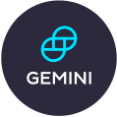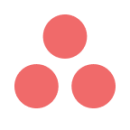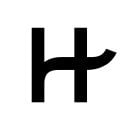Being a woman in tech is a rich, rewarding world of work. Yet, as many will tell you, it also comes with its own unique set of challenges. Built In NYC heard from female engineers who are innovating at New York City’s coolest tech companies. Their knowledge and wisdom on everything from data science to working-parenthood is invaluable for anyone, of any gender, looking to build a more inclusive and meaningful tech community.

Gemini is a new kind of exchange platform for new types of currency. Founded in 2015, the company allows users to buy, trade and store cryptocurrency in a secure and regulated space. Software Engineer and Finance Development Team Lead Wendy Mock shared how she handles everything from technical challenges to mansplaining.
How did you get into engineering?
After the release of the Sega Dreamcast in 1999, I was fascinated by how dynamic the system was, with the ability to source games from multiple inputs. I was lucky to attend Brooklyn Technical High School where, during the final two years, students are required to choose a major. I chose computer science. I wrote my first complete application while taking AP computer science junior year. My first internship followed my junior year of high school, where I worked with Con Edison, building a feeder tracking system in .NET. That summer I also worked on building a repair tracker during a major power outage. This internship drove me to work on products that service efficiency and transparency regardless of industry. Since high school, I’ve worked in a variety of industries such as law enforcement, national defense, e-commerce and finance.
What is the biggest challenge you've faced in your career, and how have you worked to overcome it?
Getting mansplained. This is an ongoing phenomenon by men in our industry. Sometimes it is intentional; sometimes it is unintentional. When I initially encountered this, I doubted my ability to share my thoughts, since it seemed that every time I had an idea, a male colleague would explain the same idea and get credit for it.
When this happens to me today, I don’t get upset, but rather loop the conversation back to my delivery.”
Through feedback from my colleagues, managers, and mentors, I realized what was happening and gained more confidence in my work. When this happens to me today, I don’t get upset, but rather loop the conversation back to my delivery and identify the individual directly as someone who was re-explaining what I just said.
What advice do you have for women pursuing a career in engineering?
W.E. Hickson said, “If at first you don’t succeed, try, try, try again.” Engineering is multifaceted. There are so many different ways to dissect a problem and provide a solution. Sometimes, there’s not just one right answer, and you don’t have to accept just one answer. Being open to failure, and open to asking for help or guidance in trying times, will allow you to appreciate what engineering is all about, rather than just being stuck on a problem or project.

CB Insights helps companies get the data they need, when they need it. Using machine learning, CB Insights is able to analyze millions of ever-shifting data points to create actionable business insights. Data Scientist Rongyao Huang shared her experiences exploring the world of data and navigating startup life as a new parent.
How did you get into engineering?
I studied economics in college, which measures, explains and predicts economic activities. I quickly found that there’s a whole array of interesting problems outside of economics that, though they seem different on the surface, can be approached with similar frameworks and techniques. While getting my master’s at Columbia, I was first acquainted with the field of data science and it all started coming together. I was particularly excited about the fact that the increasing availability of data both online and offline means more things can be measured quantitatively, and explained and predicted based on that, and that the different machineries inside the data science toolbox are just impressive. [Data science] draws from years of knowledge in stats, computer science, clinical research and so on, and develops a flexible framework that allows you to take on a problem without too much dependency on domain-specific knowledge.
What is the biggest challenge you’ve faced in your career, and how have you worked to overcome it?
I have two things to say here, one as a data scientist, the other as a work-loving mom: First, the career path as a data scientist can be less straightforward, primarily because the field is so young and rapidly evolving. As of today, people still lump all kinds of responsibilities under the title “data scientist.” To know where your strengths lie inside that field and being able to pick a path forward is highly important.
With improved time management skills, I actually found more time in a day after I became a mom.”
Second, being a mom while working full time at a startup can be challenging, but it is definitely rewarding. I was pregnant with my first child in late 2016, and had a lot of doubts about myself. Do I need to scale back at work? Is it even possible to have the best of both worlds? The answer I found is to stop thinking and just put my best foot forward. With improved time management skills, I actually found more time in a day after I became a mom. I also came to realize that it’s impossible and unnecessary to demand perfection and control in everything. So I’ve stopped judging myself on individual events, but rather have focused more on my performance over the long run. I know that as long as I set my sails in the right direction and hold my head up, I’ll get there.
What advice do you have for women pursuing a career in engineering?
Know your strength and keep developing it. As TED speaker Reshma Saujani said, “Be brave, not perfect.”

Asana’s platform helps teams of all shapes and sizes stay organized, communicate effectively and prioritize workflows. Program Lead and Product Engineer Crystal Li shared how her journey as an engineer began on a bored summer afternoon, and has seen her grow into a more confident and capable communicator.
How did you get into engineering?
Believe it or not, I was really bored one summer in high school and tried learning how to program from a physical book. I then proceeded to forget about software engineering and pursue a degree in electrical engineering instead. Then, during summer vacation of my freshman year of college, I was desperately trying to find an internship and took on a web development role in a really small town, and realized that I really enjoyed it. From then on, I took online courses, went to hackathons, got a lot of mentorship advice from my friends in software engineering and landed more software engineering internships. Eventually, that led me to my role today as a product engineer at Asana.
What is the biggest challenge you've faced in your career, and how have you worked to overcome it?
A big part of growth and learning comes from taking on challenges that are in your stretch zone and not always doing things perfectly. It's been a major shift for me to accept the fact that I'm not going to be able to do things well all the time, and that I will make mistakes, and that I will be wrong, but that shouldn't stop me from raising my hand for the new role or project or saying what I think in a meeting.
A big part of growth and learning comes from taking on challenges that are in your stretch zone and not always doing things perfectly.”
More often than not, I do make perfect sense, I have great ideas and I am ready for the challenge — but there's no way to learn this without aggressively pushing your own boundaries.
What advice do you have for women pursuing a career in engineering?
It's very normal to feel like you are in a room full of people who know more than you (yes, the dreaded Imposter Syndrome!). When you are feeling this way, it's important to reframe this as a situation where you are surrounded by people who are better at some things than you right now, and whom you can learn from. Feeling a bit of Imposter Syndrome is actually a positive indication that you're surrounding yourself with the right people. I was listening to a podcast that talked about how [our society] teaches our boys to be brave and our girls to be perfect. Being in a situation where you have a lot of room to grow challenges your perception that you have to be perfect. Instead, give yourself a pat on the back for being brave enough to try something that you don't know how to do yet. Use that bravery to ask questions and fail and learn. You'll find that this shift in framing will allow you to react more positively to challenges.

Hinge is a new kind of dating app “designed to be deleted.” The app aims to free modern dating from the games, swiping and random matchmaking of its competitors. Director of Data Science Shanshan Ding and Director of Backend Engineering Baylee Feore shared their unique experiences arriving at their current roles, and how they continue to grow.
How did you get into engineering?
SD: Toward the end of grad school, I realized I was not going to be an academic for a multitude of reasons, so I researched what someone with a PhD in mathematics could do [outside of academia]. This was right around the time that the term “data science” entered the public consciousness, and when googling what the term meant, the top search result was Insight Data Science, a fellowship for academics who wanted to transition into the tech industry. The program ended up being a life-changing experience. Insight's model is self-directed, project-driven learning, and though I had zero programming or machine learning experience at the onset, in six intense weeks I learned enough data modeling, Python, SQL and even JavaScript to build a web app to optimize fantasy baseball lineups. Afterward, I landed a job with one of Insight's partner companies and my career grew from there.
BF: I graduated from boot camp six years ago after a couple of years as a management consultant. I found that the thing I really enjoyed about consulting was building complex Excel models, which, as it turns out, is pretty similar to programming. I was attracted to the idea of having a hard skill set, building products and working on the future, so I signed up for a bootcamp. I wasn't sure if I would like it or be any good at it but decided to try it anyway. Within my first week, I knew that this was what I wanted to do with my life.
What is the biggest challenge you’ve faced in your career, and how have you worked to overcome it?
SD: The unifying theme in challenges I have faced is that the field of data science is still not well defined. It spans engineering and product, analytics and research, prototyping and implementation and more. Data science means different things to different organizations and as result, many data scientists are unhappy and stressed because they are not doing what they are trained to do. I've tackled this issue in three ways: Gain some level of competency or at least awareness across the full spectrum of data science roles, so as to develop informed perspectives on data science responsibilities in any given context; Be cognizant of both the company's expectations of your team and your team members' career development goals, so that you can proactively balance the two; Democratize data science through education and by building internal tools, which facilitates understanding and cooperation.
Follow your curiosity long term because the things you'll be best at are the things you invest the most time in.”
BF: The biggest learning [experience] I continue to have is to know when to call it quits and shift focus to something new. I think we're taught to stick things out and be reliable, and inertia is always the easiest thing, but if you're not going the direction you need to go, it's time for a change. There will be any number of things standing in the way: not knowing what you want to do next, and an endless backlog you think you need to finish first; but you'll never figure out the right direction if you keep going in the wrong one. This also applies to knowing when it’s time to leave a job, try a new technical architecture, or shift your responsibilities after a promotion. The learning moment for me is recognizing those moments earlier and wasting less time.
What advice do you have for women pursuing a career in engineering?
SD: Don't downplay your skills, opinions or achievements.
BF: My advice for women pursuing a career in engineering is to pursue it. If it's what you want to do, then keep doing it. Follow your curiosity long term because the things you'll be best at are the things you invest the most time in. You'll find it easy to invest time in subjects you're curious about.







